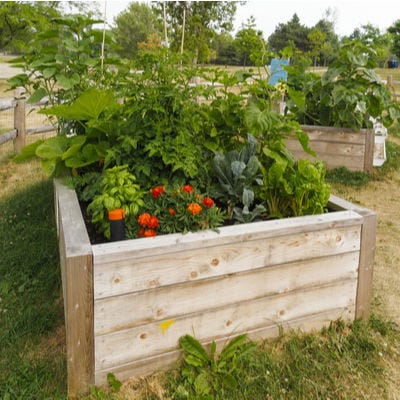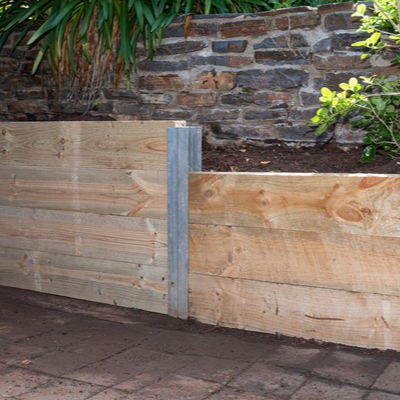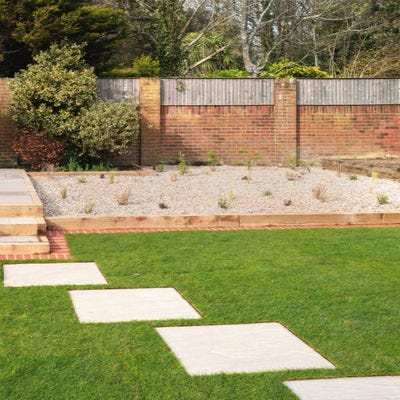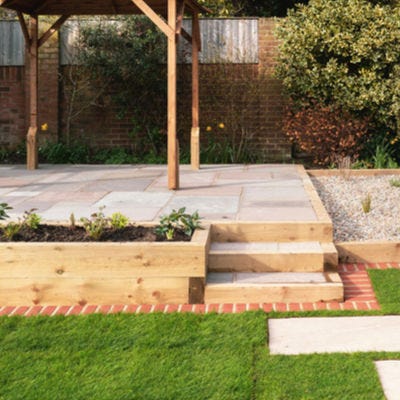Railway sleepers have been a popular landscape feature for many gardens over the decades. Due to its versatile characterises, garden sleepers continue to be loved by gardeners, homeowners, and landscapers today. You will find many types of railway sleepers, which include hardwood/oak sleepers, softwood sleepers and reclaimed sleepers. In this blog, we focus on everything you need to know about softwood railway sleepers.
What are Softwood Railway Sleepers?
Softwood railway sleepers are the most economical sleepers available for your garden. Whilst they are known as softwood, don’t be deceived in thinking that the softwood sleeper is soft. The softwood name given to this garden sleeper is derived from the type of seed and tree the sleeper has been made from. For example, a tree seed which has no coating or cover is generally described as softwood.
In general, softwood sleepers are lighter in weight when compared with hardwood (oak) sleepers and therefore this makes them easier to lift, move, cut and position. Our range of softwood sleepers are used for a variety of garden projects such as raised flower beds, retaining walls, garden edging and steps or as paths.
What Softwood Sleeper colours are available to me at Lawsons?
At Lawsons, we offer a wide range of softwood sleepers, but they come in two main colours which is green softwood sleepers and brown softwood sleepers. We also have a rustic softwood style for those who prefer such a more weathered look.
What are the key benefits of using Softwood Railway Sleepers?
- Weight - Softwood sleepers are easier to carry, lift, position and even cut in comparison to hardwood (oak) sleepers
- Environmentally Friendly – Softwood grow much quicker than hardwoods and use less energy when need to be cut or with the process of drying, therefore the impact on the environment is greatly reduced.
- Landscaping Projects – softwood sleepers are versatile and have many uses for many garden projects you may have in mind.
What can I use Softwood Sleepers for?
Landscapers use softwood sleepers for a variety of gardening projects due to its versatile and durable nature. See below our top picks for using softwood sleepers:
- Raised Flower Bed

- Retaining Sleeper Wall

- Garden Edging

- Garden Sleeper Steps

- Garden Sleeper Paths

How do I treat Softwood Railway Sleepers?
Softwood railway sleepers is a timber a product and therefore over time in its natural state it will wear, however you can extend the life of your sleeper with regular maintenance and treatment. Use decking oils to allow the sleepers to naturally age into a beautiful colour, whilst keeping them protected.
You can also opt for wood preservative, which will protect and nourish the timber from decay. Wood preservatives treatments provide softwood sleepers with protective properties that help prevent rot, mould and fungal growth, as well as help to form a defence against the elements.
Related Articles
What types of Railway Sleepers are there?
Hardwood or Softwood Garden Sleepers
How To Lay Railway Sleepers In The Garden
Why Create A Raised Sleeper Bed

